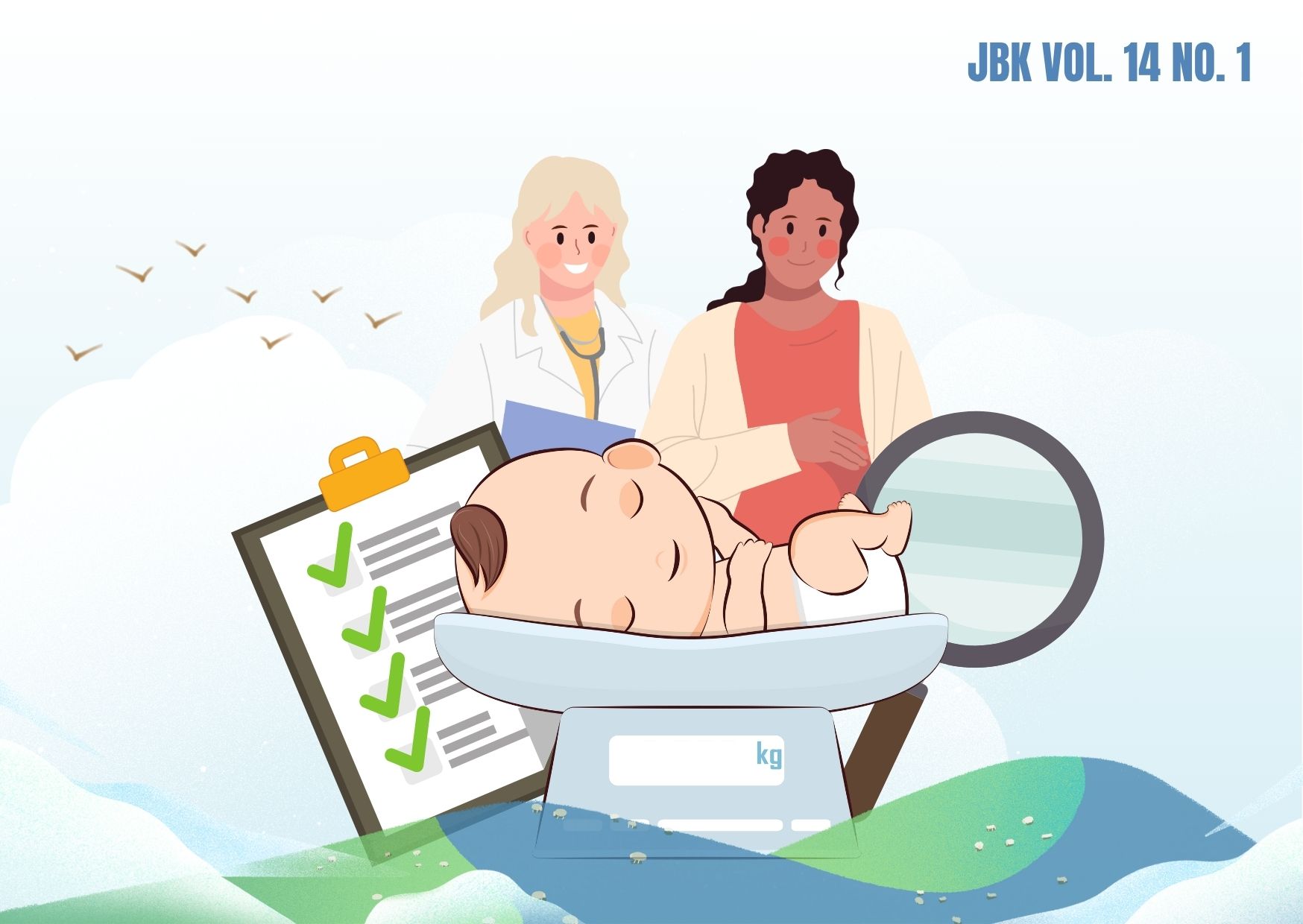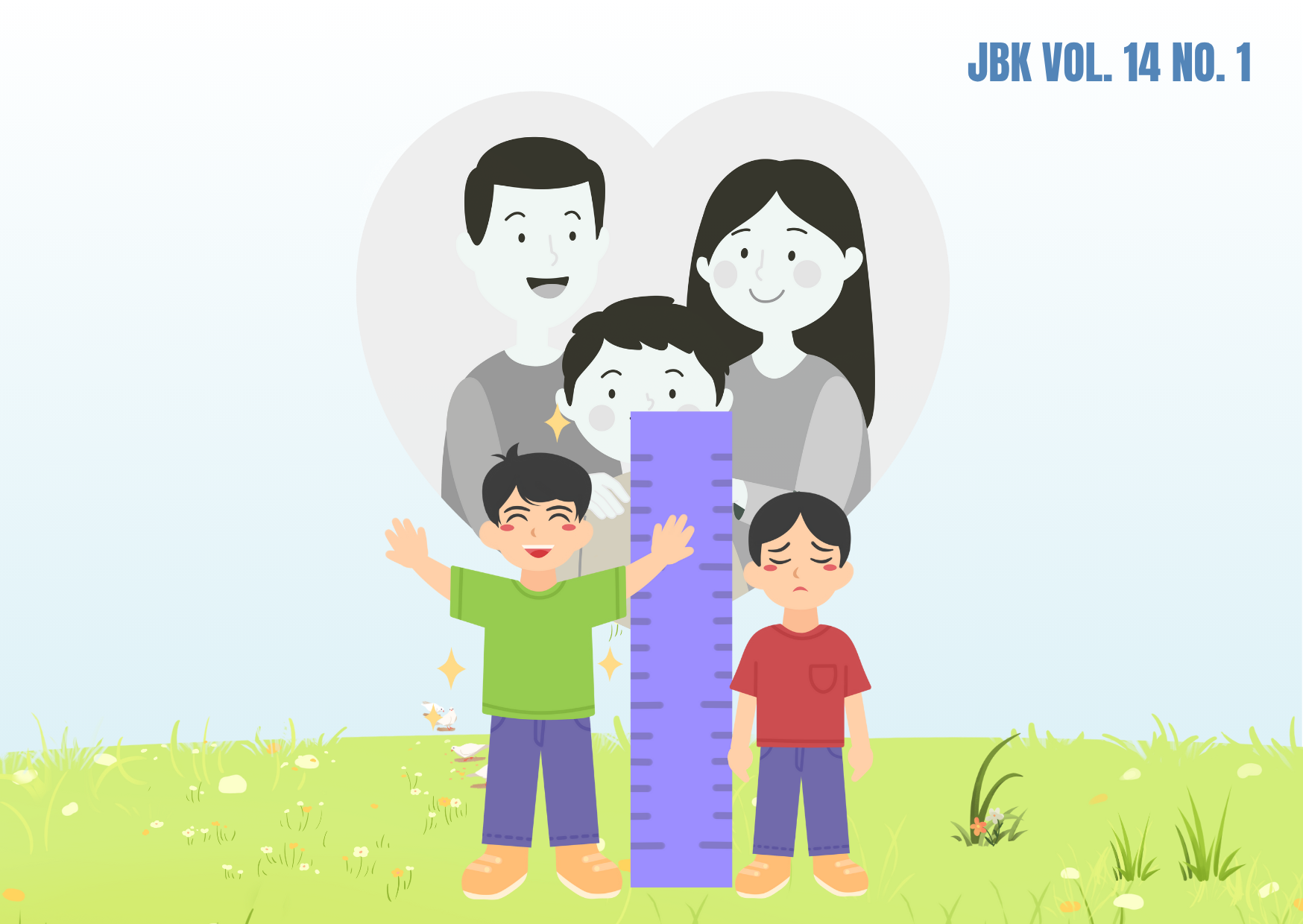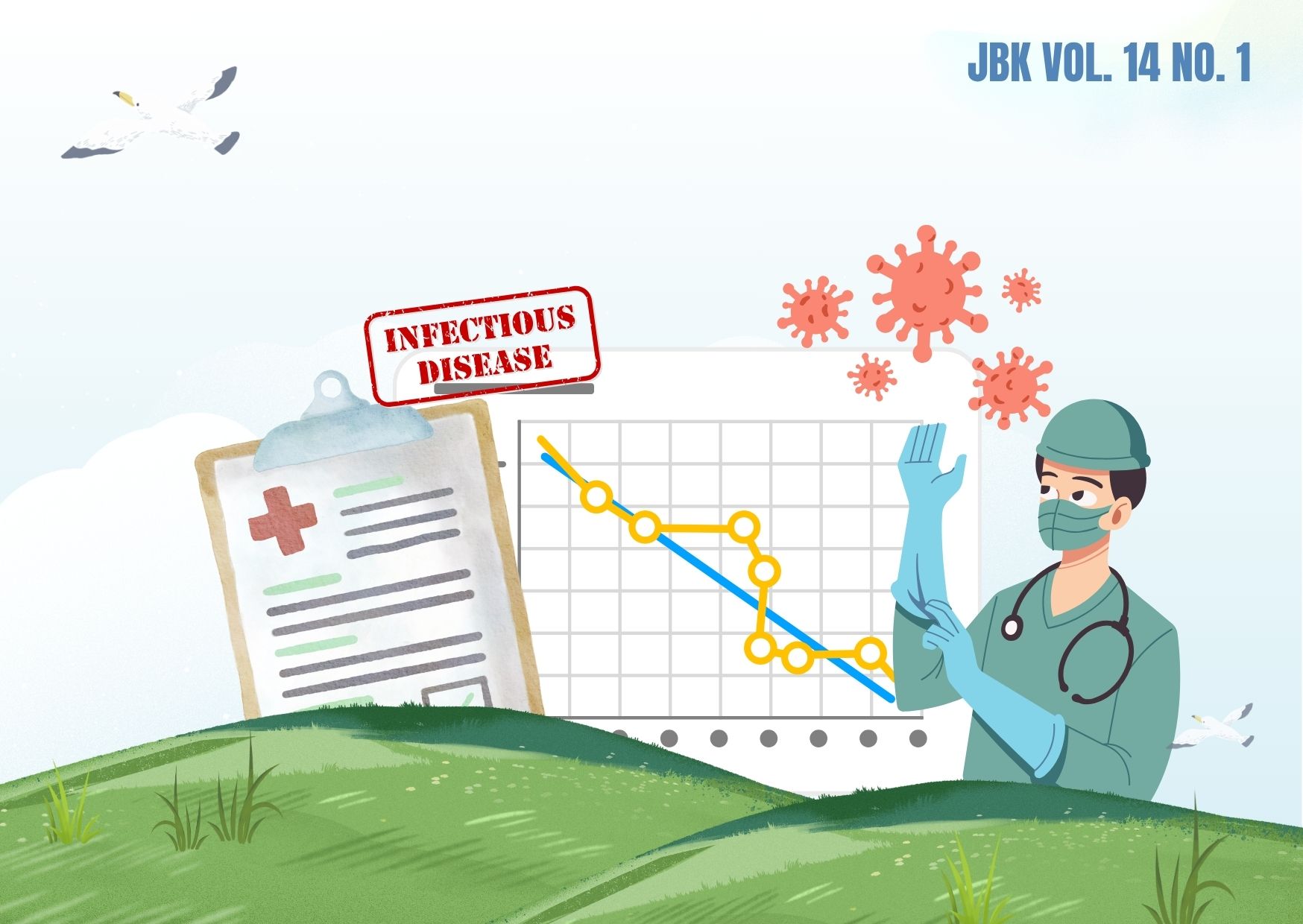Gambaran Tren Program Pembangunan Keluarga Kelompok Kegiatan Bina Keluarga Balita (Poktan BKB) (Survei KKBPK RPJMN Keluarga 2017)
Downloads
Ariyanti, T., 2016. Pentingnya Pendidikan Anak Usia Dini Bagi Tumbuh Kembang Anak The Importance of Childhood Education for Child Development. Dinamika: Jurnal Ilmiah Pendidikan Dasar, 8(1), pp.50–58.
BKKBN, 2013. Panduan Pelaksanaan Kegiatan Bina Keluarga Balita (BKB) yang Terintegrasi dalam Rangka Penyelenggaraan Pengembangan Anak Usia Dini Holistik Integratif. Jakarta: Badan Kependudukan dan Keluarga Berencana Nasional.
BKKBN, 2016. Rencana Strategis Badan Kependudukan dan Keluarga Berencana Nasional Tahun 2015-2019. Jakarta: Badan Kependudukan dan Keluarga Berencana Nasional.
BKKBN, 2017. Survei Indikator Kinerja Program KKBPK RPJMN Keluarga Tahun 2017. Jakarta: Badan Kependudukan dan Keluarga Berencana Nasional Pusat Penelitian dan Pengembangan Keluarga Berencana dan Keluarga Sejahtera.
Diana, F.M., 2010. Pemantauan Perkembangan Anak Balita. Jurnal Kesehatan Masyarakat, 4(2), pp.116–129.
Hulukati, W., 2015. Peran Lingkungan Keluarga terhadap Perkembangan Anak. Jurnal Musawa, 7(2), pp.265–282.
Mardiyono, 2012. Model Pengelolaan Bina Keluarga Balita (BKB) di Provinsi Jawa Timur. Jurnal Cakrawala, 6(2), pp.184–194.
Nurlaila dan Nurchairina, 2014. Pemberian Stimulasi oleh Ibu untuk Perkembangan Balita. Jurnal Keperawatan, 10(1), pp.138–142.
Oktriyanto, 2016. Partisipasi Keluarga Anggota Bina Keluarga Balita (BKB) dalam Pengasuhan dan Tumbuh Kembang Anak Usia 0-6 Tahun. Jurnal Kependudukan Indonesia, 11(2), pp.133–142.
Peraturan Menteri Kesehatan Republik Indonesia Nomor 42 Tahun 2013 Tentang Penyelenggaraan Imunisasi. Jakarta: Kementerian Kesehatan Republik Indonesia.
Peraturan Pemerintah Republik Indonesia Nomor 87 Tahun 2014 Tentang Perkembangan Kependudukan dan Pembangunan Keluarga, Keluarga Berencana, dan Sistem Informasi Keluarga. Jakarta: Kementerian Hukum dan Hak Asasi Manusia Republik Indonesia.
Pratama, D., 2017. Dampak Partisipasi Orang Tua dalam Kegiatan Bina Keluarga Balita terhadap Proses Stimulasi Tumbuh Kembang Balita (Studi pada Keluarga Peserta BKB Flamboyan RW 03 Kelurahan Cigugur Tengah Kecamatan Cimahi Tengah). Jurnal Antologi Pendidikan Luar Sekolah, 13(2), pp.42–52.
Purwaningrum, S., Wardani, Y., 2012. Hubungan antara Asupan Makanan dan Status Kesadaran Gizi Keluarga dengan Status Gizi Balita di Wilayah Kerja Puskesmas Sewon I, Bantul. Kes Mas: Jurnal Kesehatan Masyarakat, 6(3), pp.144–211.
Setianingrum, S., Desmawati, L., Yusuf, A., 2017. Peranan Kader Bina Keluarga Balita dalam Optimalisasi Tumbuh Kembang Fisik Motorik Anak Usia Dini. Journal of Nonformal Education and Community Empowerment, 1(2), pp.137–145.
Suherman, 2010. Perkembangan Anak. Jakarta: EGC.
Suwanti, I., Suidah, H., 2017. Hubungan Pola Asuh Orang Tua dengan Mental Emosional pada Anak Usia Prasekolah (4-6 Tahun). Jurnal Keperawatan & Kebidanan, 8(1), pp.20–29.
Undang-Undang Republik Indonesia Nomor 52 Tahun 2009 tentang Perkembangan Kependudukan dan Pembangunan Keluarga. Jakarta: Kementerian Hukum dan Hak Asasi Manusia Republik Indonesia.
Copyright©2022 Jurnal Biometrika dan Kependudukan (Journal of Biometrics and Population)
This work is licensed under a Creative Commons Attribution-NonCommercial-ShareAlike 4.0 International License.
1. Copyright of all journal manuscripts is held by the Jurnal Biometrika dan Kependudukan.
2. Formal legal provisions to access digital articles of the electronic journals are subject to the provision of the Creative Commons Attribution-ShareAlike license (CC BY-NC-SA), which means that Jurnal Kesehatan Biometrika dan Kependudukan to keep, transfer media/format, manage in the form of databases, maintain, and publish articles.
3. Published manuscripts both printed and electronic are open access for educational, research, and library purposes. Additionally, the editorial board is not responsible for any violations of copyright law.



































